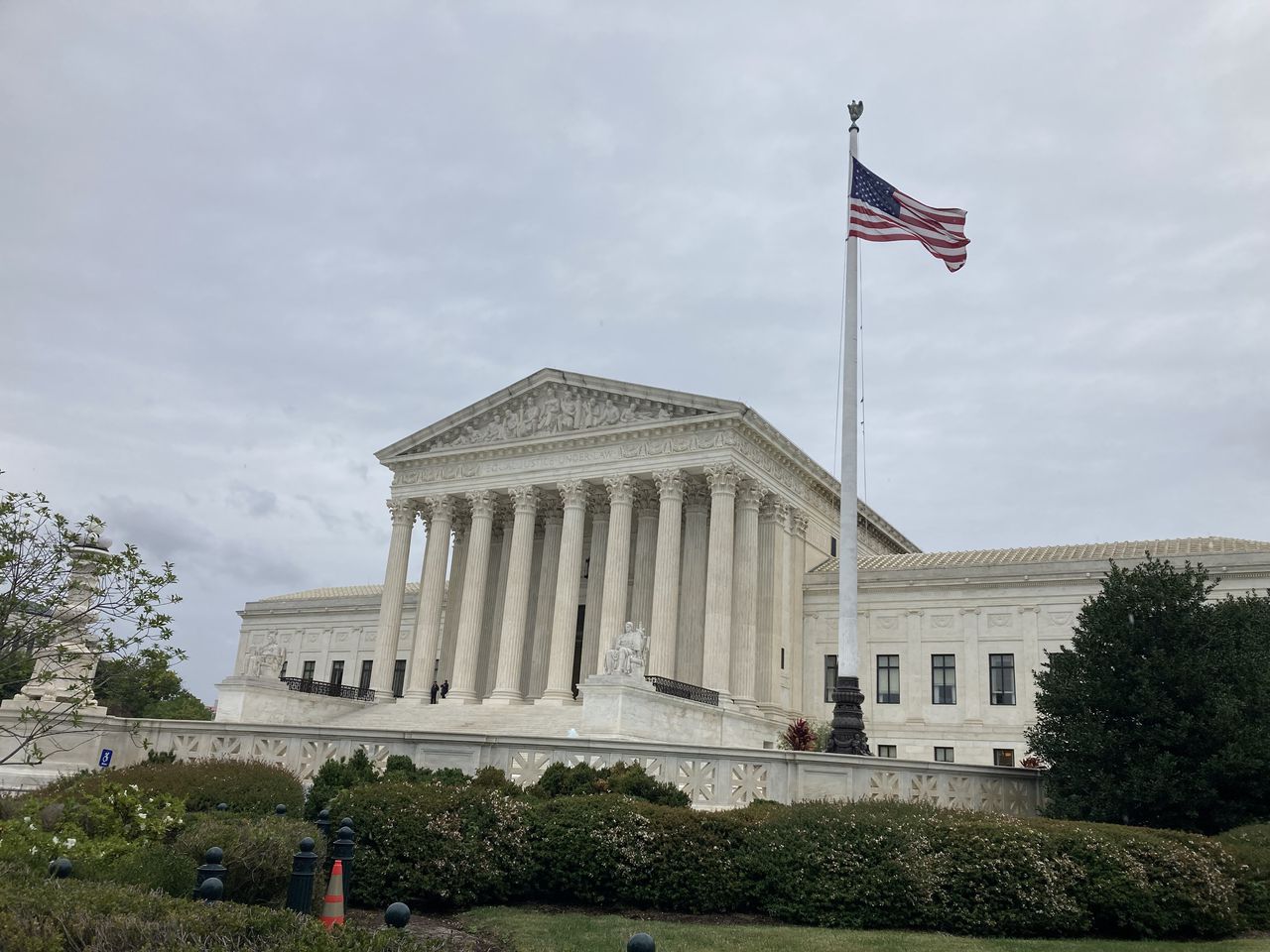This is how the Voting Rights Act ends
This is a column.
When I was a kid in rural Alabama, I didn’t enjoy professional wrestling — or rasslin’ — nearly as much as my friends seemed to. Before the bell rang at school, I’d hear breathless reports of what Rowdy Roddy Piper had done the night before, but for me, there was something about a predetermined contest that took the excitement out of the so-called sport.
The few times I tried to get into it, I figured out pretty early on who was going to win.
And today, there’s something equally less thrilling about to happen inside this courthouse across the street from the U.S. Capitol. Above the front door, it says “Equal Justice Under Law” etched into the facade, but I can’t shake the feeling it’s only that — a facade.
This here has all the markings of a rigged game. But unlike those matches on TBS so long ago, this one will have consequences — for Alabama.
And for America.
On Tuesday, the state of Alabama will defend its congressional district map before the United States Supreme Court.
Few expect Alabama to lose. The only question is what this country looks like after the state wins.
Earlier this year, a three-judge panel — including two Trump appointees — found that Alabama had violated the Constitution by drawing too many Black people into the state’s only majority-Black congressional district. It was a surprising outcome unfavorable to the state’s Republican supermajority.
The judges ordered the Alabama Legislature to draw a new district map, but the Legislature — which had drawn the original map in a matter of days — said it couldn’t meet the court’s deadline. The three-judge panel gave the state a deadline, after which it would draw the state’s new congressional map for it.
That’s when the U.S. Supreme Court intervened.
Using its so-called “shadow docket,” the court stayed the lower court ruling until it could hear the case — after Alabama’s 2022 primaries. For now, the Supreme Court reinstated the Alabama Legislature’s district map. And the court may not deliver a ruling in the case until next year, well after the general election next month.
The higher court’s intervention sent a clear message. If Constitutional rights or fair representation for Black voters were at risk, the court cared less about those things than it did getting another election done with.
Putting something on the back burner says everything about where it lands on your list of priorities.
But this case isn’t only about how many seats one party or the other has in Alabama and in Congress. It’s about the Voting Rights Act, or what’s left of it. And that’s what’s really at stake when the court hears oral arguments today.
Already, Alabama has played an outsized role in the voting rights of Black Americans. It was the march from Selma to Montgomery that set the Voting Rights Act on its way into law.
And Alabama is where, too, the Voting Rights Act might meet its end.
Already, Shelby v. Holder gutted the pre-clearance provisions of the law, which required states and counties with a history of racial discrimination and voter suppression to seek the Justice Department’s permission before changing district lines or voting practices.
No sooner had the court struck that part of the law than Alabama had enacted voter ID and it attempted to close drivers license offices in predominately Black counties.
Now comes our home state for the rest of the VRA — Section 2, which draws a fine line regarding drawing districts.
Section 2 prohibits states from diluting the influence of minority voters. The plaintiffs in Merrill v. Milligan have argued that the latest district map packs too many Black voters into one oddly shaped congressional district, winding from downtown Birmingham to Tuscaloosa to the Black Belt and back around to Montgomery all while avoiding GOP enclaves in Shelby County and other suburbs. The drawing of Alabama’s 7th District effectively limits the influence of Black voters in Alabama when there are enough Black voters to justify two majority- (or near-majority) Black districts.
The trouble here is — and this is the metal folding chair propped conspicuously outside the ring — is that it’s hard to tell Alabama, on one hand, it must give Black voters fair influence in congressional elections but then, on the other hand, tell the state it can’t draw district lines based on race.
The signs are there that the conservative majority on the court could use this case to gut Section 2 and severely limit what’s left of the law.
At which point, there’s no guarantee the state will not act as it did before, using its new license to the advantage of its majority partisan interests.
And as Alabama goes, so goes the nation.
This script seems to be written.
The winner is set.
But this ain’t rasslin’.
When it’s over, somebody’s going to get hurt. For real.
Kyle Whitmire is the state political columnist for the Alabama Media Group, 2020 winner of the Walker Stone Award, winner of the 2021 SPJ award for opinion writing, and 2021 winner of the Molly Ivins prize for political commentary.
You can follow his work on his Facebook page, The War on Dumb. And on Twitter. And on Instagram.
MORE COLUMNS BY KYLE WHITMIRE
Alabama GOP chairman made the photo ID he used to vote
Alabama GOP chair refused to show license to vote. That became a problem for poll workers.
Alabama GOP chair’s family believed voter ID was mark of the beast, brother said in deposition
